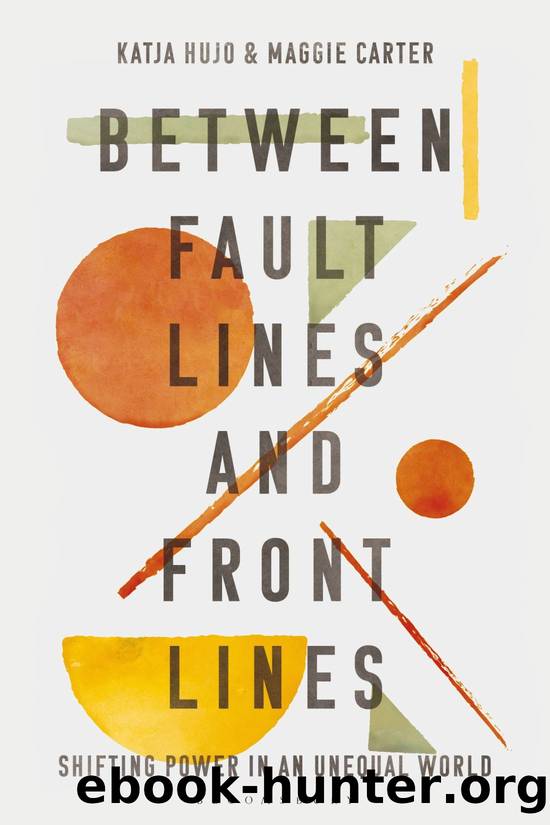Between Fault Lines and Front Lines by Katja Hujo

Author:Katja Hujo
Language: eng
Format: epub
ISBN: 9781350229044
Publisher: Bloomsbury Publishing
Published: 2022-03-08T00:00:00+00:00
Conclusion: Bringing Back Politics to City-to-City Cooperation
The combination of rapid urbanization and neoliberal capitalism has turned modern cities into new sites of political contestation, as different constituencies in the city assert their right to produce and use urban space in pursuit of diverse interests and aspirations. In the developing world, Brazil stands out as a country where a radical democratic constituency, inspired by Henri Lefebvreâs idea of a right to the city, was able to secure some degree of urban reforms in favor of impoverished and disenfranchised city residents. Despite the increasingly fragile nature of Brazilâs experiment on democratic urban reform, it has inspired similar efforts in Africa and other developing countries. In this chapter, I have used the example of partnerships between Brazilian and Mozambican cities to critique attempts to democratize urban governance and development through city-to-city cooperation. I have argued that a narrow and technocratic approach to city-to-city cooperation is incapable of inducing the kind of democratic reform that the right to the city demands. As was the case in Brazil, this requires significant redistribution of power in the local political society. Without aiming to transform urban power relations, city-to-city cooperation can at best improve the capacity of local authorities to plan and deliver social services in an inclusive and efficient manner. At worst, it can serve to reinforce the disenfranchisement of marginalized urban communities.
What is required therefore is a reconception of city-to-city partnerships, not as neutral technical exchanges but as inherently political tools that can either reinforce unequal power relations in cities or be fashioned into catalysts for inclusive urban transformation. Against the backdrop of the discourse to undo the inequalities that have become pervasive in urban spaces, the challenge then is to design these partnerships in a manner that is sensitive to their implications for the distribution of power among stakeholders in the city. One way to do it is to democratize this aspect of urban governance by incorporating exchanges between a cross section of relevant stakeholders into the design of city-to-city partnerships. This would ensure that key social groups with a stake in a particular urban issue are actively involved in the transnational linkages that shape the governance of this issue. The implications of such an inclusive design for the fight against inequality and exclusion in the city are twofold. First, by broadening the actors involved in city-to-city cooperation and embedding these exchanges in the social dynamics in the city, these exchanges are transformed into a site for renegotiating power relations in the city rather than just reinforcing them. Second, an inclusive approach to city-to-city cooperation would afford marginalized urban groups the opportunity to network with, and draw inspiration from, their peers in other countries, with the potential for effective social activism.
Furthermore, the analysis of Maputoâs experience with the right to the city underscores the difficulty in implementing this principle given the contested nature of rights and the strong vested interests in the existing politico-legal order. This makes a sustained, broad-based national movement critical for making any gains in democratizing the city.
Download
This site does not store any files on its server. We only index and link to content provided by other sites. Please contact the content providers to delete copyright contents if any and email us, we'll remove relevant links or contents immediately.
International Integration of the Brazilian Economy by Elias C. Grivoyannis(106928)
The Radium Girls by Kate Moore(12001)
Turbulence by E. J. Noyes(8001)
Nudge - Improving Decisions about Health, Wealth, and Happiness by Thaler Sunstein(7678)
The Black Swan by Nassim Nicholas Taleb(7086)
Rich Dad Poor Dad by Robert T. Kiyosaki(6574)
Pioneering Portfolio Management by David F. Swensen(6269)
Man-made Catastrophes and Risk Information Concealment by Dmitry Chernov & Didier Sornette(5980)
Zero to One by Peter Thiel(5764)
Secrecy World by Jake Bernstein(4727)
Millionaire: The Philanderer, Gambler, and Duelist Who Invented Modern Finance by Janet Gleeson(4446)
The Age of Surveillance Capitalism by Shoshana Zuboff(4267)
Skin in the Game by Nassim Nicholas Taleb(4223)
The Money Culture by Michael Lewis(4173)
Bullshit Jobs by David Graeber(4161)
Skin in the Game: Hidden Asymmetries in Daily Life by Nassim Nicholas Taleb(3973)
The Dhandho Investor by Mohnish Pabrai(3741)
The Wisdom of Finance by Mihir Desai(3718)
Blockchain Basics by Daniel Drescher(3564)
